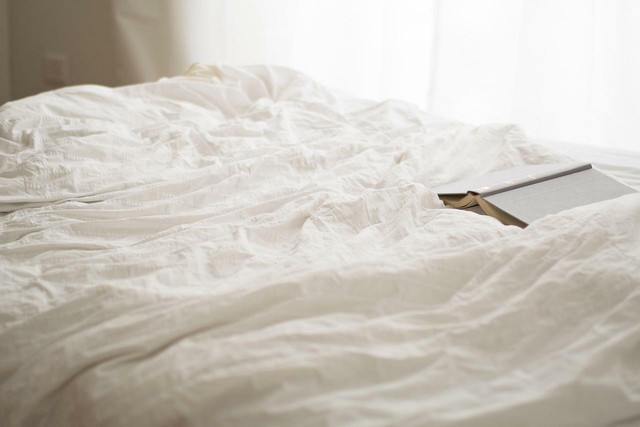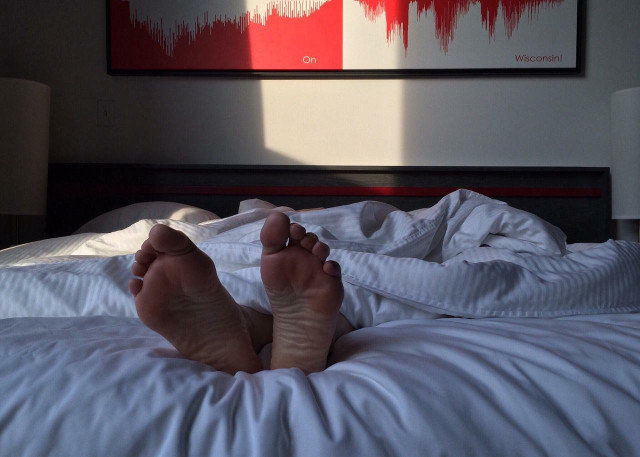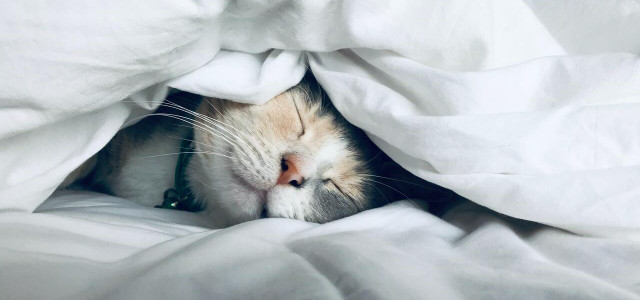Figuring out how to get more REM sleep can be difficult on a busy schedule. However, there are natural remedies for healthy living that can give your REM sleep a boost.
In a basic sense, REM sleep refers to the rapid eye movement that occurs during this sleep stage. In addition, REM sleep is most associated with dreaming, problem-solving and emotional processing. That’s why not getting enough of this kind of sleep can negatively affect your day-to-day well-being.
Why is REM Sleep So Important?

Generally, REM sleep naturally occurs less than non-REM sleep but becomes more frequent the longer your sleep cycle continues in a night. This makes REM particularly important; disruptions to your usual sleep schedule can reduce REM time and cause you to feel tired throughout the day.
So, how should you go about improving your sleep habits? Here are eight tips on how to get more REM sleep naturally and build personal care habits to feel more well rested.
Maintain Natural Sleep Hygiene
Speaking of sleep habits, maintaining good sleep hygiene is a key part of healthy living and getting more REM sleep. You can have good sleep hygiene in many ways. The most straightforward approach is keeping a sleep schedule with specific rest hours and committing to it consistently.
Eliminate Distractions Before Bed
After a busy day, it can be tempting to spend your late nights and early mornings on the internet or checking social media. However, using electronic devices like TVs and laptops before bed disrupts your natural sleep rhythms and can lead to poor quality sleep. To prevent this, set a specific time to switch your devices off or turn down your screen’s brightness and sound to get yourself ready for REM sleep. For more tips and tricks on falling asleep quickly, try our guide to falling asleep.
Avoid Caffeine and Alcohol For More REM Sleep
Both caffeine and alcohol are psychoactive substances proven to interrupt your sleeping process and cause fatigue and irritability. Reduce the amount you drink during the day or avoid caffeine and alcohol in the evenings to get a long night’s sleep — including the essential REM stage. For more tips on how to quit caffeine, try our guide to quitting coffee.
De-stress!
Getting a good night of restful and naturally induced sleep can be difficult if you do not feel relaxed before bedtime. However, relaxing after a hard day doesn’t have to be complicated. To de-stress, try listening to quiet music, unwinding with a meditation session or breathing technique, or enjoying a peaceful hot bath.
Set the Mood



Generally, it can be challenging to get to sleep in an environment that isn’t physically and emotionally calming. To set a relaxing mood in your bedroom, remove bright light, loud noises, and other distractions before you begin your nighttime routine.
Get Comfortable
Being comfortable in bed seems like a no-brainer, but it can be hard to get comfortable enough to fall asleep — and stay asleep. To help you relax and get ready for REM, experiment with different numbers and styles of pillows and blankets, and try using essential oils or herbs.
You can also try adjusting the temperature of your bedroom — it’s been proven that cooler temperatures give you better sleep.
Avoid Late Meals
Eating late doesn’t just cause strange dreams. While not directly linked to disruptions in your natural REM patterns, eating close to bedtime is, however, known to increase your chance of experiencing heartburn, acid reflux and nausea, all of which make getting a good night’s sleep much harder. To avoid these issues, stop eating several hours before your planned bedtime.
Be Consistent
Even if you find yourself unable to sleep or your sleep schedule has been disrupted, keep trying. Learning how to get more REM sleep is important to our physical and mental health. Instead of giving up on a good night’s sleep entirely, try doing another small activity until you feel more tired (like reading!) or adjusting the temperature, brightness and noise in your bedroom.
Read more:
- These Are the Best Plants for Your Bedroom & Sleep
- Spring Fever and Fatigue: Causes and Remedies
- Afternoon Fatigue: 6 Ways to Beat a Midday Slump
Important Information regarding Health-related Topics.
** Links to retailers marked with ** or underlined orange are partially partner links: If you buy here, you actively support Utopia.org, because we will receive a small part of the sales proceeds. More info.Do you like this post?








